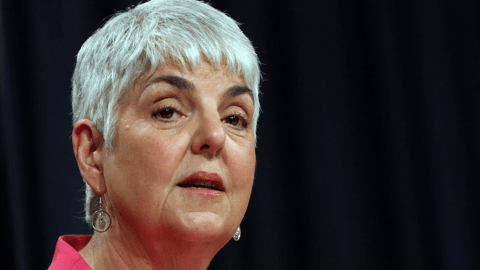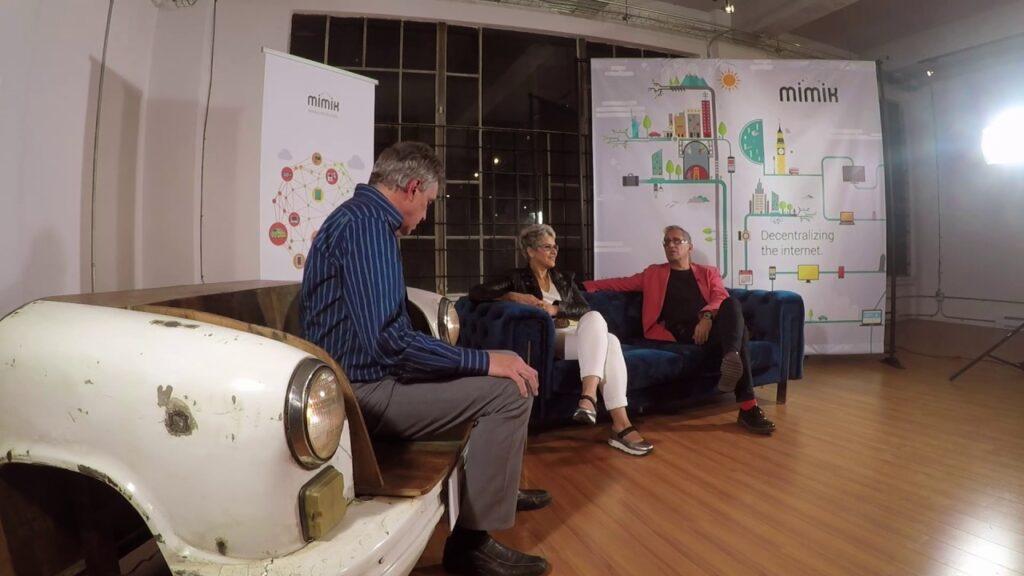It’s day 83 since Canada’s 100th coronavirus case. The number of cases is 91,647 as of publication time, up 700 since yesterday—a 19 per cent decrease from the seven-day prior average of new cases, which is below 1,000 for the fourth consecutive day. On their respective 83rd day, U.S. daily new cases were down 14 per cent from the seven-day prior average; the U.K. was down 21 per cent in daily new cases from the seven-day prior; and in Italy, new cases were down 28 per cent.*
Rent relief: The B.C. government is barring some landlords from evicting small businesses that can’t pay rent because of the pandemic. Under the new Emergency Program Act, landlords are restricted from terminating leases and launching rent-repayment lawsuits until at least the end of June. The only two provinces to have imposed a moratorium on commercial evictions thus far are Nova Scotia and New Brunswick.
The order is meant as a backup for businesses whose landlords haven’t applied for the federal Canada Emergency Commercial Rent Assistance program (CECRA). Property owners participating in CECRA are eligible for non-repayable loans to cover 50 per cent of the rent for April, May and June if they cut rents by at least 75 per cent and agree not to evict tenants who have lost at least 70 per cent of their revenue during the pandemic. The program has been criticized for making aid contingent on landlords applying for loans, leaving tenants vulnerable to low participation among landlords. B.C.’s program, which doesn’t come with loans for landlords, is meant to incentivize more property owners to apply for CECRA.
In the markets: All major North American indices closed up despite protests across the United States and Canada as well as escalating conflict between Washington and Beijing. On Monday, China paused purchases of some American farm products after U.S. President Donald Trump threatened to eliminate Hong Kong’s preferential trade status, but did not announce specific enforcement actions or timelines. The vagueness of Trump’s pronouncement appeared to reassure Asian markets, with Hong Kong’s benchmark Hang Seng index closing up 3.4 per cent and the Shanghai Composite Index up 2.2 per cent. Oil futures steadied despite concerns that the tensions would affect demand.
The U.S. dollar also dropped as investors purchased a wider array of currencies, a sign of confidence in a global economic recovery. The Canadian dollar continued its over two-month rally to reach 73.64 cents U.S. in late afternoon trading. The U.S. manufacturing index hit 43.1 in May, up from the 11-year low in April of 41.5, but still below the 50-point mark that indicates an increase in manufacturing. Saudi Arabia’s central bank provided US$13.3 billion to support liquidity in its banking sector, and China’s central bank said it would buy bank loans worth US$140 billion to encourage lending to small businesses. The moves are the latest examples of wealthy nations turning to public debt to finance their recoveries. So far, OECD nations are on track to take on at least US$17 trillion in debt, pushing average government liabilities from 109 per cent to over 137 per cent.
Although Apple, Walmart, Target and CVS temporarily shut some stores due to the George Floyd protests, the market as a whole is largely shrugging off the mass movement. That could change, though, according to Moody’s Analytics chief economist Mark Zandi. “Just when people were starting to come out of the proverbial bunkers, the protests may be too much for them, and they will go back in,” said Zandi. “The protests are also symptomatic of just how deep the economic problems and racial tensions go in our country.”
“Not even God himself could sink this market rally”: Axios Markets editor Dion Rabouin reflected on how the confluence of the pandemic, civil unrest over race relations and a precarious China-U.S. trade deal has not impacted the markets at all. In fact, they’re readying for the busiest week of U.S. IPOs since February.
Cross-country checkup: The federal Gas Tax Fund will pay out $2.2 billion for municipal infrastructure projects in a single June payment, instead of over two installments. In April, the Federation of Canadian Municipalities asked for $10 billion for operational expenses like transit, rather than accelerated funding for capital expenditures. Canada saw a 29 per cent drop in permanent residents coming to the country in March compared to the same month last year. Temporary foreign workers into Canada dropped by 35 per cent and international student visas fell by 45 per cent. Health experts say Ontario’s contact-tracing efforts are inadequate, with the system taking days in some cases to inform people they’ve been in contact with someone who tested positive for COVID-19. Meanwhile, the province is looking to extend its state of emergency to June 30, and the provincial ombudsman has launched an investigation into its oversight of long-term care homes. New Brunswick reopened several national parks and historic sites Monday after reporting no new cases; reopening in the Campbellton area of the province remained delayed, with all 12 active cases linked to a doctor in the region who failed to self-isolate after returning from Quebec.
The future of the office: Co-working spaces hope to play an important role in a post-pandemic future where companies look to downsize their real-estate footprints and rebuild office culture. To do that, they first have to survive the downturn. The Logic spoke to six co-working-space owners, who said they were struggling to meet their overhead in the short term, with revenue from membership and events dwindling and little rent relief coming from landlords or governments. The challenge, according to Shane Auston, who runs the Okanagan coLab coworking space in Kelowna, B.C., is to “learn how to become more than a co-working space.”
Bay Street to Main Street: Ritual, the order-ahead food app, has raised US$22 million from existing investors at what The Globe and Mail reported was a reduced valuation, and will launch a new platform at a flat monthly fee next week that allows restaurants to build order-taking websites.
- Oil and gas extraction firms spent $8.1 billion on machinery, equipment, exploration, evaluation and other capital expenditures in the first three months of 2020, down 1.3 per cent from the previous quarter.
- Reitmans Canada will shut down its Thyme Maternity and Addition Elle brands, which have 54 and 77 stores, respectively, and lay off 1,400 staff.
- Ontario will amend the Employment Standards Act to place non-unionized workers whose hours have been cut on temporary leave, suspending employers’ obligation to terminate them and pay severance 13 weeks after layoffs.
- Building construction investment in Canada fell 3.6 per cent to $15.4 billion in March.
In the lab: Doctors at the Centre for Global Health Research at Toronto’s St. Michael’s Hospital will send 10,000 Canadians blood kits to test them for COVID-19 antibodies. Vancouver-based AbCellera and Eli Lilly announced they have started an early-stage trial for their potential antibody treatment. Gilead Sciences’ late-stage remdesivir trial has shown a modest improvement in those with moderate COVID-19 cases. Patrick Soon-Shiong, the billionaire surgeon, bioscientist and entrepreneur who also owns The Los Angeles Times, is reportedly creating an experimental vaccine, which has been shortlisted by the White House for evaluation. June is expected to be a critical month for vaccine news; here are 12 developments to watch out for.
Trace me on my cellphone: Mimik Technology CEO Fay Arjomandi addressed a House of Commons committee on May 21 about the Vancouver-based company’s contact-tracing app, Pandimik. The app is reportedly ready to be deployed; Arjomandi said large companies are evaluating it as a back-to-work tool. Italy launched its app on Monday; France will release its app tomorrow. U.K. privacy groups are planning a legal challenge against the government’s app
after discovering it retains personal data for up to 20 years. Members of the U.S. Congress will release a bipartisan bill today aimed at regulating contact-tracing apps and minimizing privacy abuses. Meanwhile, 23 machine learning researchers say personalized peer-to-peer contact tracing through apps could help effectively lower community spread.
Drinking from the firehose:
- Women-run hedge funds outperformed those run by men during the pandemic; they lost 3.5 per cent on average in the first four months of the year compared to the 5.5 per cent drop across all hedge funds.
- Deal activity among the broader tech sector dropped 68 per cent in March compared to a year ago; at the same time, Alphabet, Amazon, Apple, Facebook and Microsoft are on pace for the busiest M&A year since 2015.
- A shift to remote work among Silicon Valley tech firms could see employees take major pay cuts, depending on the median salaries in the areas from which they’re working.
- U.S. online grocery sales jumped 24 per cent between April and May, and 450 per cent from a year earlier.
- Cambridge, Mass.-based Biobot Analytics is testing sewage from about 400 U.S. wastewater facilities for traces of COVID-19 to estimate the number of people infected in a given area.
- While Google ramps up efforts to bar and remove false information about COVID-19, the company is also placing ads on websites spouting conspiracy theories about the virus, including those claiming it’s linked to 5G.
- IBM remains elusive about the scope of job cuts it’s made across the company, inciting anxiety among workers.
Around the world: The Chinese city of Wuhan, where the virus began, reported no new asymptomatic cases for the first time in nearly two months. The South Korean government unveiled a US$62-billion New Deal spending plan. Russian President Vladimir Putin has set July 1 as the new date for a constitutional referendum that was delayed because of the coronavirus; if it passes, Putin could remain in power until 2036. Spain reported no new daily COVID-19 deaths for the first time since March, though some contest its reporting methods. Istanbul’s 550-year-old Grand Bazaar reopened its doors on Monday, as did many Italian cultural sites, including the Colosseum. People queued outside schools and Ikea locations on Britain’s first day of eased restrictions. U.S. companies are asking employees and guests to sign coronavirus waivers as they reopen. Public health experts say the protests in the U.S. will cause a spike in COVID-19 infections. The lockdowns could expose people to indoor air pollution.
“Cheer up Hanabi”: More than 160 firework companies simultaneously launched colouful displays across Japan on Monday night as a happy surprise for the public and as a prayer for the pandemic to end. You can watch one display here.
* We’re emphasizing new cases, rather than running totals, because “flattening the curve” is when each day’s new cases are fewer than those of the previous day. The percentage increase is determined based on how today’s cases compare to a rolling seven-day prior average. Numbers may also vary based on countries’ individual testing capacity and reporting.



